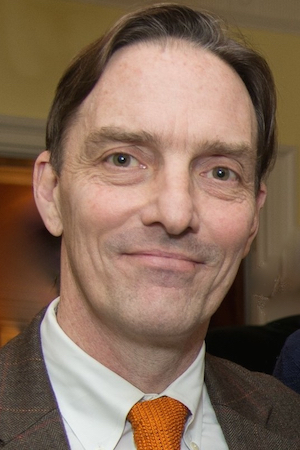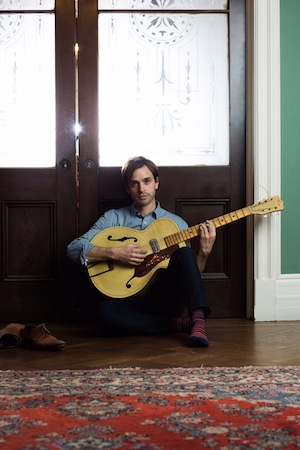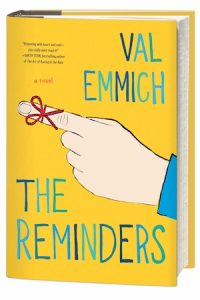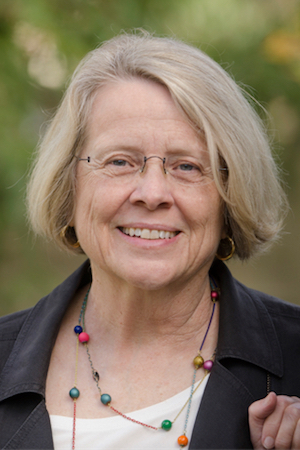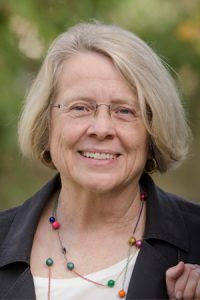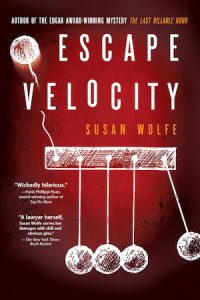We were absolutely delighted when we got a request from editor extraordinaire Peter Ginna to write something for a new book he was putting together called What Editors Do: The Art, Craft, and Business of Book Editing. Because Arielle is an agent and writer, and David is a writer and book doctor, we have a very different perspective than most people who make money editing books. We thoroughly enjoyed writing our piece, but it was much more fun reading some of the amazing pieces in this book. So now that What Editors Do is out, we picked Peter’s brain on what it was like to go from being the guy with the red pencil to the guy waiting to see how many red marks would come back on his pages.
Read this interview on the HuffPost.

Peter Ginna
The Book Doctors: As your subtitle suggests, and as your introduction states, being an editor today includes so much more than editing. What should you expect from your editor? Or if you’re looking to become an editor, what skills do you need to do the job well?
Peter Ginna: Let me answer those questions in reverse order. As I said in the piece that you mention, editing encompasses many different roles. The core of the job is still working with an author to make his or her text as good as it can be. Some editors inside publishing houses, and most freelance editors, focus almost entirely on that task. But most editors, especially in trade publishing, have to shepherd a book all the way from the author’s keyboard into the marketplace, so they have to be very involved in marketing, design, production, publicity—everything that goes into bringing that work to readers.
If you’re looking to become an editor, nobody expects you to be an expert at that stuff right away. But you need to have an interest in learning about it, because it’s crucial.
If you’re an author, you should expect your editor to be passionate about your book, and to treat you as a valued partner in the publishing process. For a lot of authors, the publishing house is a black box. The editor owes them frequent and honest communication.
TBD: Why is it that in relationships, as in books, it’s so easy to see what’s wrong with someone else’s stuff, but so hard to see what’s wrong with our own stuff? Is there any way to bring the editor’s outlook to your own work?
PG: It’s incredibly hard to judge your own work! That’s why there are editors. At the risk of seeming to suck up, your chapter in this book on self-editing for authors has great advice on this. At a minimum, put your manuscript away for a week (or longer) and reread it with fresher eyes. Read it aloud so you can really hear how it flows, or doesn’t. Even better, enlist some “beta readers” whom you can trust to give you an honest response.
TBD: We have found that editing other people’s books makes us better writers, and being writers helps us as editors. What did you learn from writing and putting together this book that you will bring back to your job as editor?
PG: Hah! —I learned how hard it is to meet your editor’s deadlines! And continuing from your last question, learned, from the author’s side, how valuable it is to be forced to think about why you said something a certain way, and whether there might be a clearer or cleaner way to say it.
TBD: While we’re on the subject, what was it like exchanging your editor hat for your writer hat? And did you end up cursing your editor silently or out loud? And what advice do you have for writers when they receive an edit back on their most precious book?
PG: I never cursed my editor, who was wonderful. My experience in thirty-plus years of editing has been that authors rarely cursed me out. I believe that what authors want, more than praise or even success, is to be read. For a reader to connect with their writing. If the author knows you’ve read their work really closely, even if you are criticizing something or asking them to change it, they are usually grateful. I have definitely found that it’s the best writers who are most gracious and receptive to editorial suggestions. (With very rare egomaniacal exceptions…)
TBD: We always tell people that editors and agents are trained to say “no.” Can you speak to the experience of rejecting books? Is it rote at this point or do you actually feel anything when you are rejecting? And if you dealt with rejection with this book, can you tell us how it felt to be on the other side?
PG: I understand why you say editors are trained to say no—we do it 95 percent of the time, or more. And especially as traditional publishers compete with self-publishing, we’ve heard a lot about the editor as “gatekeeper,” an image that makes you think of a bouncer turning away people from a hot party. But that’s not how editors think about it—nobody comes to work hoping to turn down a lot of books that day. Editors live to find books to publish, and new titles are the lifeblood of a publishing house. Every day you open your email hoping to find something you love. It’s easy to reject a manuscript that leaves you cold, but editors really agonize when they come across a book that shows talent but that they can’t make an offer for—either because colleagues won’t support it, or because it’s too flawed in some way. Fortunately for me, my editor and I worked together on creating What Editors Do from the beginning so I didn’t have to go through the process of pitching it.
TBD: Can you tell us the process a book goes through at a publishing house once a deal is made? And are there any differences in the actual editing process between a Big 5 publisher, an independent house, or an academic press?
PG: Whew, the process is quite complicated and anyone who wants a thorough description of it should read the chapter by Nancy Miller called “The Book’s Journey.” The first part of it is the actual editing, where editor and author revise the manuscript (sometimes several times). But there’s also a multi-pronged marketing process that begins at acquisition and really ramps up when the final manuscript is delivered. At that point there’s also the complex work of turning the author’s text into a printed or digital book, which itself usually takes several months.
The principles of editing don’t vary between presses, but it is often the case that academic presses do a kind of triage on their lists. They don’t have the resources to edit every book intensively, so many books don’t get too much more than a copy edit. However, for books where they feel the effort is appropriate, scholarly publishers often do just as good a job, or better, than trade houses. My editor, and the whole press at Chicago, did a superbly thorough job on What Editors Do. I should add that there are chapters in my book by editors from independent and academic presses who discuss their work in more depth.
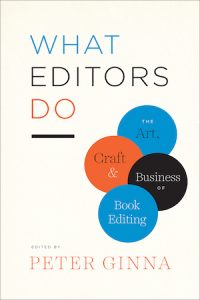
University of Chicago Press
TBD: Speaking of academic presses, What Editors Do is published by The University of Chicago Press. Why did you choose to go with a university press? Does the fact that they publish The Chicago Manual of Style influence your decision at all, since this is a book every editor needs to have on her desk? What was the experience like and how did it differ from the publishing experience of say, Bloomsbury, where you were Editorial Director?
PG: Chicago, in fact, proposed this project to me, which was some form of kismet because I had been thinking for some time about the need for a book like this. This subject made sense for them, because good publishers are always looking for books in areas where they’re already strong—they know the market and have a head start on getting recognition for new titles in that field. And for me, because Chicago is a leading publisher in this area, I was thrilled to be on their list. For an editing book, to be marketed alongside the Manual of Style is a big advantage. It’s hard for me to compare Chicago vs. Bloomsbury from the author’s point of view because I have only been an author with one of them. I’d say the main difference is that Chicago is placing more emphasis on marketing to courses and libraries than most trade presses would, and is less focused on the trade market.
TBD: Is it possible for writers to approach editors at larger houses directly? What is the best way of doing this?
PG: Realistically speaking, I would recommend authors try to find an agent before approaching publishers directly. It’s simply much harder to get an editor’s attention when you submit “over the transom.” That said, as an editor I was always open to an intelligent, well-targeted query. If an author wrote me and said, “I saw that you were the editor of Colin Dexter’s Inspector Morse mysteries. I’ve written a new crime novel with a brilliant, enigmatic detective and classic whodunit elements that I think will appeal to the same readers who love Morse,” I would always give that person’s work a read. I knew that the author had at least done some homework and thought about why they were sending it to me.
TBD: Our essay in What Editors Do is about self-publishing. Many people ask us, “If I self-publish my book, will it ruin my chances of getting published by a bigger publisher?” How would you answer this question?
PG: You probably know more about this question than I do, but especially nowadays I don’t think there’s any stigma attached to having self-published your work. What’s important is to self-publish your work well. If your self-published book is full of mistakes, badly typeset, or amateurish-looking, it will reflect badly on you. (Covers are hugely important!) But if you do a good job with it—and especially if you sell enough copies to show there is an audience for your writing—I think that gives you a leg up on finding a publisher for future work.
TBD: You rarely hear a kid say “I want to be an editor when I grow up.” This is particularly true if you don’t grow up in a typically white, well-educated, upper middle class environment. Chris Jackson has a brilliant essay in the book about the fact that there is little to no diversity in publishing despite all the talk about the issue. If someone is reading this interview and wants to become an editor but doesn’t fit into these boxes, what tips do you have for breaking into the business? How can you encourage someone to make the effort to break down doors?
PG: I would urge anyone, of any background, to read Chris’s essay because it shows how a person who is passionate about books found his way in publishing despite both his own handicaps—Chris says he didn’t know how to type a letter when he started out as an assistant—and the structural obstacles in the system. It’s unfortunately true that, like many other old-school businesses, publishers are oversupplied with applicants from privileged backgrounds with fancy college degrees, and they still hire lots of those people because it’s easy to do. The good news is that most every publisher understands the importance of diversity and many houses have explicit efforts under way to increase it, so it’s a great time to apply for a job in publishing.
Also, I truly believe publishing is democratic in the sense that, if you really love reading, and really know your way around books, and you’re smart and willing to work hard, that will get recognized really fast. And it’s actually way more important than whether you went to an Ivy League school. This may sound silly, but what we all have in common in the book business is that we love books! And being among people who self-selected on that principle makes for a pretty congenial working life. Whatever “box” you fit into, if you are one of those people who spent your teenage years reading with a flashlight under the covers, you should think about a career in publishing.
Peter Ginna is an independent book editor and the author/editor of WHAT EDITORS DO: THE ART, CRAFT, AND BUSINESS OF BOOK EDITING. He has worked in publishing houses for over 30 years, most recently as publisher and editorial director at Bloomsbury Press, an imprint he founded at Bloomsbury USA. Before that he held editorial positions at Oxford University Press, Crown Publishers, St. Martin’s Press, and Persea Books. Authors he has worked with include James M. McPherson, David Hackett Fischer, and David Oshinsky (all winners of the Pulitzer Prize), Daniel Ellsberg, Michael B. Oren, Alice Kessler-Harris, Suze Orman, and Colin Dexter. He comments about books, writing, and publishing at the blog Doctor Syntax, and has written for Creative Nonfiction magazine, Nieman Storyboard, and the Huffington Post. You can follow him on Twitter at @DoctorSyntax.
Arielle Eckstut and David Henry Sterry are co-founders of The Book Doctors, a company that has helped countless authors get their books published. They are co-authors of The Essential Guide to Getting Your Book Published: How To Write It, Sell It, and Market It… Successfully (Workman, 2015). They are also book editors, and between them they have authored 25 books, and appeared on National Public Radio, the London Times, and the front cover of the Sunday New York Times Book Review.

